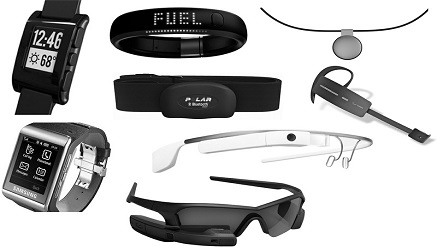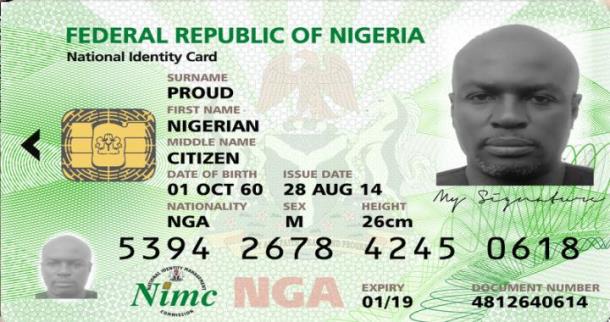E-Business
Report Indicates ‘Must Do’ By Wearables to Capture Middle East & Africa

The wearables growth story continues unabated in the Middle East and Africa (MEA) region, with shipments reaching an all-time high of 746,000 units in the final quarter of 2016, according to the latest figures compiled by International Data Corporation (IDC).
The global ICT research and consulting services firm says shipments were up 29.0% year on year in Q4 2016, spurred by new launches from leading vendors and the entrance of new players to the market.
When looking at 2016 as a whole, IDC’s data shows that wearables shipments for the MEA region were up 52.2% year on year.
This was primarily driven by the strong performance of low-cost basic wearables (i.e., devices that do not support third-party applications), which grew 67.9% year on year in 2016. The growth for smart wearable devices (i.e., devices that do support third-party applications) was not quite as spectacular, with shipments up 20.7% over the same period.
“Health and fitness are the only areas currently addressed by wearable tech, and these are areas that smart and basic wearables perform equally well in,” said Nakul Dogra, a senior research analyst for personal computing, systems, and infrastructure solutions at IDC MEA. “As such, users do not receive any incremental benefit in terms of functionality from investing the additional cost required for a smart wearable device. There is therefore a need for wearables to evolve from basic functionalities like counting steps and analyzing sleeping patterns to more complex functionalities that rely on the use of third-party apps. Such apps are clearly underutilized in the current scenario, which is limiting the growth of smart wearables.”
Besides functionality, Dogra also anticipates a shift in the way wearables are bought. “With fashion hogging much of the limelight, utility is being pushed into the shadows,” he said. “As such, sales of wearables will increasingly be driven by fashion labels that are partnering with tech brands, a move that will help take wearables to a new audience and broaden the retail of these gadgets beyond traditional electronics stores and into fashion outlets. New product launches are expected in the clothing segment in 2017 and this will inevitably accentuate the focus on fashion within the wearables space.”
IDC expects the MEA wearables market to grow 24.1% year on year in 2017 to reach a total of 2.9 million units. And looking further ahead, IDC’s latest forecast shows the market expanding at a compound annual growth rate (CAGR) of 11.3% over the 2016–2021 period.
“The wearables market is continuously evolving,” said Dogra. “Going forward, we expect the smart watch space to become further segmented, with each brand/product catering to a niche audience (i.e., kids watches, sports watches, luxury watches, fashion watches) and addressing the particular needs of specific users in a more effective way. Currently, the majority of smart watches are generic in nature, with a single device trying to cater to the multiple needs of a varied set of consumers, often with poor results. This segmentation is therefore a positive move for the wearables industry, with customer satisfaction and stickiness likely to increase if these niche products are able to address their needs better.”
Dogra also believes that wearables vendors must look to differentiate their products from smartphones and create a compelling need for wearables within the broader ecosystem of gadgets. “Without this differentiation, wearables will stagnate and be viewed as little more than fashion accessories for your smartphone,” he said. “Wearables have the potential to form an integral part of the Internet of Things ecosystem, so it is imperative that vendors come up with innovative solutions that move beyond health and fitness to enable consumers to perform day-to-day tasks in an easier way.”
To keep pace with the changes taking place in this fast-moving market, IDC has launched its Worldwide Quarterly Wearable Device Tracker, which assists vendors that are looking to enter this market, promote new product developments, or accelerate the growth of their wearables divisions.
The tracker includes details on products, vendors, and technology trends at both global and country levels, as well as historical market data and five-year forecasts. The report also provides valuable insights into the adoption of core wearable features, such as form factor, connectivity, sensors, operating systems, and applications, and offers invaluable assistance to tech firms looking to develop successful long-term business strategies for wearable devices.
E-Business
Wakanow Acquires Nairabox, Digital Ticketing and Events Platform

Wakanow Group, one of Africa’s leading travel technology companies, has acquired Nairabox, a fast-growing Nigerian platform for digital ticketing, events, and lifestyle experiences.

In a statement on Monday, the company said the move marks a strategic step as it expands beyond travel services into entertainment and lifestyle sectors increasingly shaped by digital integration and consumer experience.
Founded as a digital hub for concerts, cinema tickets, and live events, Nairabox has built a reputation for connecting users to leisure activities through its app and online platform.
They say its integration into the Wakanow ecosystem will allow the group to offer a more seamless experience across travel, leisure, and culture.
Wakanow also named Tobi Andero as the new Head of Business for Nairabox.
Andero, who joins from the experiential marketing sector, is expected to lead the brand’s growth and strengthen its market positioning under Wakanow’s ownership.
Commenting on the acquisition, Bayo Adedeji, Wakanow’s Group CEO, said it aligns with the company’s mission to deepen consumer engagement across lifestyle touchpoints.
He said, “We see tremendous opportunity in the intersection of travel and entertainment. This acquisition allows us to offer deeper, richer experiences to our customers, not just where they travel but also how they live, enjoy, and engage with culture. We are excited about what the future holds as we combine Wakanow’s strength and reach with the lifestyle energy of Nairabox.”
He added that Wakanow’s expansion strategy extends beyond geographical reach to include new sectors that complement its travel business.
Ugochukwu Jay Chikezie, CEO of Nairabox, described the partnership as “an exciting new chapter” for the entertainment-tech space in Nigeria.
“Joining forces with Wakanow marks an exciting new chapter for Nairabox and for entertainment in Nigeria. Over the years, we’ve built a platform that connects people to the experiences they love: concerts, movies, and live events.
‘‘This acquiition allows us to further scale that vision by integrating travel and entertainment into one seamless ecosystem. Together with Wakanow, we’re creating a future where access to unforgettable experiences, whether across cities or continents, becomes simpler, smarter, and more connected than ever,’’ he said.
The acquisition underscores a growing convergence between travel and entertainment within Africa’s digital economy, as tech-driven brands seek to deliver more holistic consumer experiences.
Wakanow Group’s portfolio now includes platforms such as Wakanow.com, Kalabash54.com, Roomde.com, Onburd.com, Pointview Travels, Trip Merchant, and the newly acquired Nairabox.com.
E-Business
Six Strategies to Grow Your E-Commerce Business in Nigeria

By Kehinde Ogundare, Country Head, Zoho Nigeria
Nigeria’s e-commerce landscape is evolving rapidly. From fashion and electronics to groceries and beauty products, more Nigerians are shopping online than ever before. According to DataReportal, the country had 103 million internet users as of January 2024, and online retail sales continue to grow as more people gain access to affordable smartphones and digital payment systems.

However, while opportunity is expanding, so is competition. Thousands of small businesses now sell across Instagram, WhatsApp, and local marketplaces. For many, the challenge is no longer getting online, it’s standing out and building sustainable growth.
Below are six strategies that can help e-commerce entrepreneurs in Nigeria compete more effectively, connect with customers, and scale sustainably.
1. Focus on a niche, not the crowd
The internet offers endless reach, but success often lies in narrowing your focus. Instead of trying to appeal to everyone, identify a specific audience whose needs you understand deeply—whether that’s fitness enthusiasts, new parents, or tech-savvy students.
Niche targeting allows you to tailor your message, pricing, and product experience. It also helps small businesses build loyalty and word-of-mouth credibility in markets where advertising budgets are limited.
2. Build relationships beyond social media
Social platforms are powerful but unpredictable. Algorithms change, engagement fluctuates, and visibility can vanish overnight. That’s why it’s essential to diversify how you stay connected with customers.
Email newsletters, community groups, or loyalty programs provide more direct and reliable touchpoints. Use these channels to share updates, answer questions, and offer genuine value—not just promotions. Consistent, thoughtful communication builds trust that outlasts social trends.
3. Use data to understand customer behaviour
Every click, search, and abandoned cart tells a story. Tracking customer behaviour—through analytics dashboards, feedback forms, or even simple observation—can reveal why shoppers drop off and what keeps them coming back.
For example, you might discover that most users exit your site during checkout due to limited payment options. Adding mobile money or bank transfer features could increase conversions immediately. Data-driven decisions help eliminate guesswork and improve user experience.
4. Create content that answers real questions
Many Nigerian shoppers research extensively before buying online, especially from lesser-known brands. Publishing clear, helpful content—such as FAQs, size guides, or product comparisons—can bridge the trust gap.
A small skincare brand, for example, could post educational pieces on ingredients and routines, while a gadget store could share short explainers on choosing the right devices. When people find answers through your content, they are more likely to view your business as credible and dependable.
5. Explore automation and AI for efficiency
Artificial Intelligence is reshaping how small businesses operate globally—and Nigeria is no exception. From customer support chatbots to inventory management and personalized recommendations, automation can simplify repetitive work and improve decision-making.
Even basic AI tools can help analyse trends, spot buying patterns, and free up time for strategic tasks. The goal isn’t to replace human connection but to enhance it by focusing your energy where it matters most—understanding and serving your customers.
6. Build credibility through customer voices
Nigerians value peer opinions. Reviews, testimonials, and user-generated content often carry more weight than brand messaging. Encourage satisfied customers to share feedback or showcase how they use your products.
Displaying honest reviews on your website or social pages signals transparency and confidence. People are far more likely to trust a brand that others vouch for, especially in a marketplace crowded with new entrants.
Building for the long term
Sustainable e-commerce growth in Nigeria isn’t about chasing every new platform or pouring money into ads—it’s about clarity, consistency, and connection. By focusing on real customer needs, learning from data, and building trust at every step, businesses can create lasting impact in one of Africa’s most dynamic digital markets.
E-Business
NHIA, NIMC Ink MoU to Boost Universal Health Coverage Drive with Digital ID

National Health Insurance Authority of Nigeria (NHIA) has signed a Memorandum of Understanding (MoU) with the National Identity Management Commission (NIMC) to make the National Identification Number (NIN) an integral part of healthcare access in the country.

The MoU was signed recently between the CEOs of both government agencies and the principal idea to have the digital ID fully integrated with the healthcare system, a step which both parties see as critical in advancing Nigeria’s universal health coverage (UHC) scheme.
Nigeria launched a UHC initiative in 2005 but its implementation has faced several challenges along the way.
The government retouched the plan in 2022 under the NHIA Act and the new target is to ensure every citizen is covered by the UHC scheme by 2030.
Kelechi Ohiri, director general and CEO, NHIA, said in a thread on his X account that the integration of the NIMC’s identity infrastructure with the national healthcare system will boost the UHC scheme by enhancing inclusivity, improving the efficiency of service delivery processes, and strengthening data integrity to support better planning.
“This collaboration demonstrates our commitment to building a resilient healthcare ecosystem through strong inter-agency partnerships,” the CEO added.
Through the collaboration, a unified system will be put in place which will link the identity of NHIA members to their patient records, not only for easy identification but also to streamline access to care.
The move is also aimed at reducing fraud and enhancing transparency in the patient management process especially in the area of processing claims.
Talking about transparency, Nigeria’s NIMC-NHIA collaboration is in the steps of moves in a country like Kenya where biometrics is used to tackle insurance fraud which has seen the government lose millions of dollars in the last few years.
The MoU comes as the MINC has continued to strengthen NIN coverage with almost 124 million issued as of September, according to The Guardian.
Meanwhile, the ID authority announced in July that it looks forward to launching the General Multipurpose Identity Card (GMPC) this month.
The ID, which the NIMC announced last year, is framed as a tool with a triple purpose to enhance digital and financial inclusion.

 General News3 days ago
General News3 days agoIHS Nigeria Champions a Prosperous Nigeria through Digital Inclusion at NES #31

 E-Financial3 days ago
E-Financial3 days agoPolaris Bank Wraps Up 2025 Customer Service Week with Renewed Commitment to Customer Satisfaction

 News3 days ago
News3 days agoNITDA DG says Corps Members Catalysts for Technological Innovation

 Telecom3 days ago
Telecom3 days agoMTN Nigeria to Connect 8m Homes with Fibre Network by 2028

 E-Financial3 days ago
E-Financial3 days agoCBN Orders Banks to Refund Failed ATM Transactions within 24 Hours

 E-Financial2 days ago
E-Financial2 days agoWeek Ahead: Nigeria CPI, US-China trade woes, big bank earnings

 Telecom2 days ago
Telecom2 days agoTD Africa and HP Strengthen Partnership, Eye Expansion Across Africa

 E-Financial3 days ago
E-Financial3 days agoTelcos Are Becoming Banks for The Next 2Bn Customers















